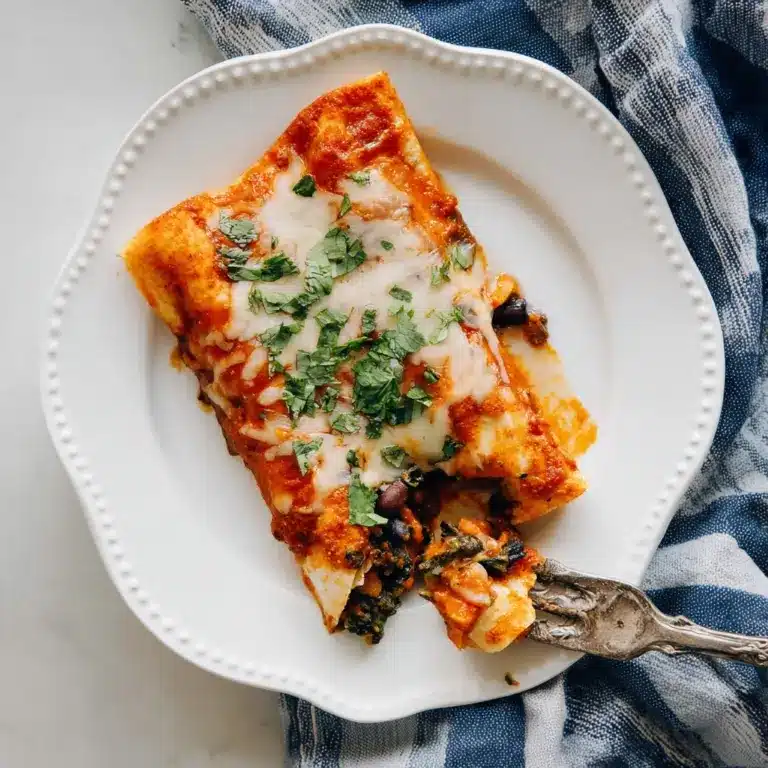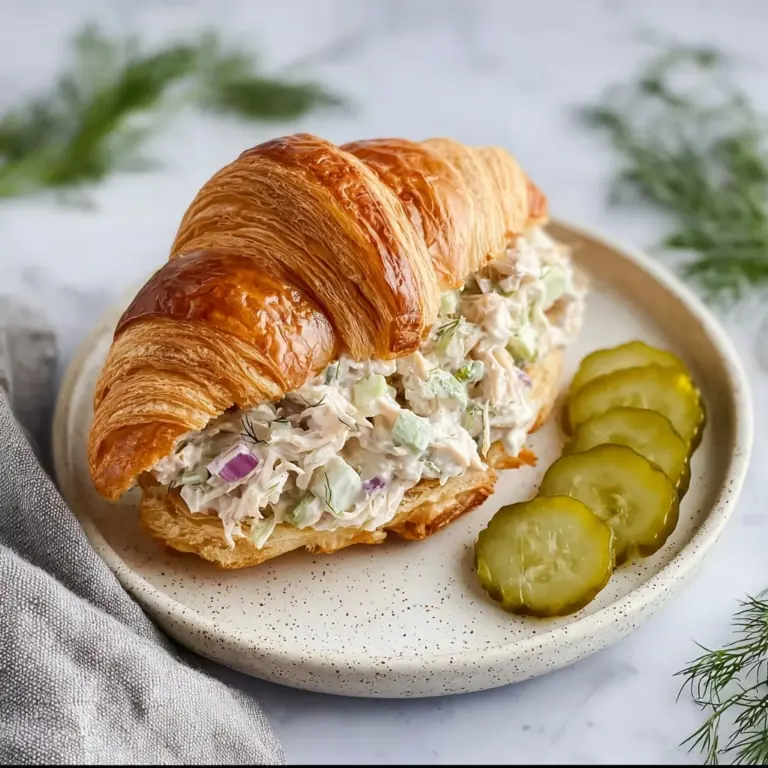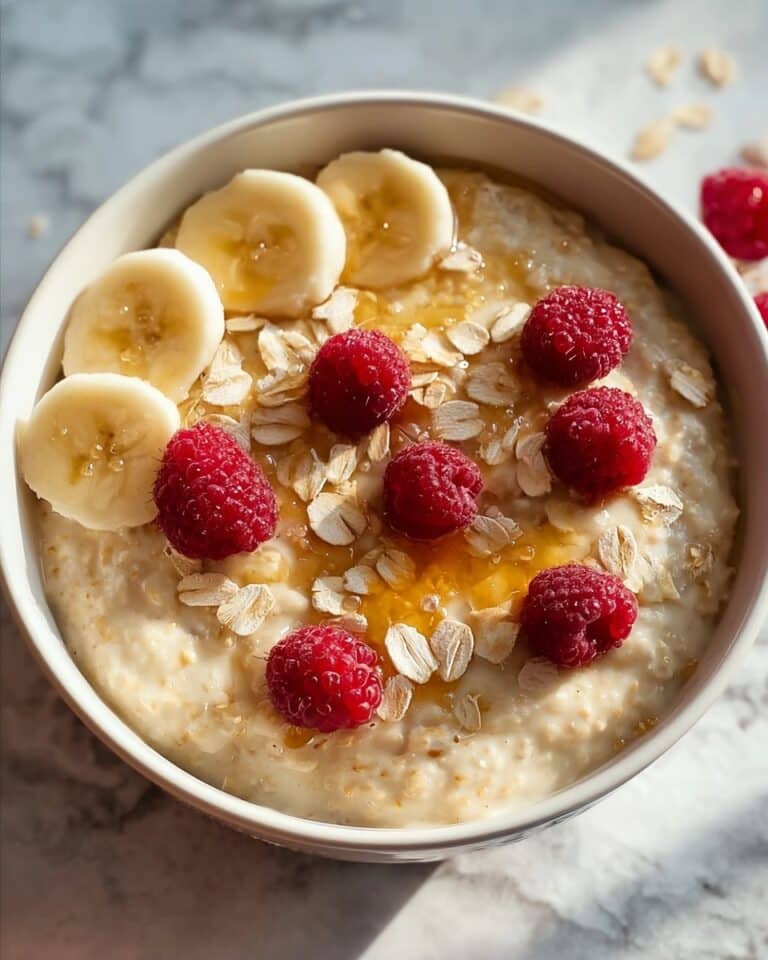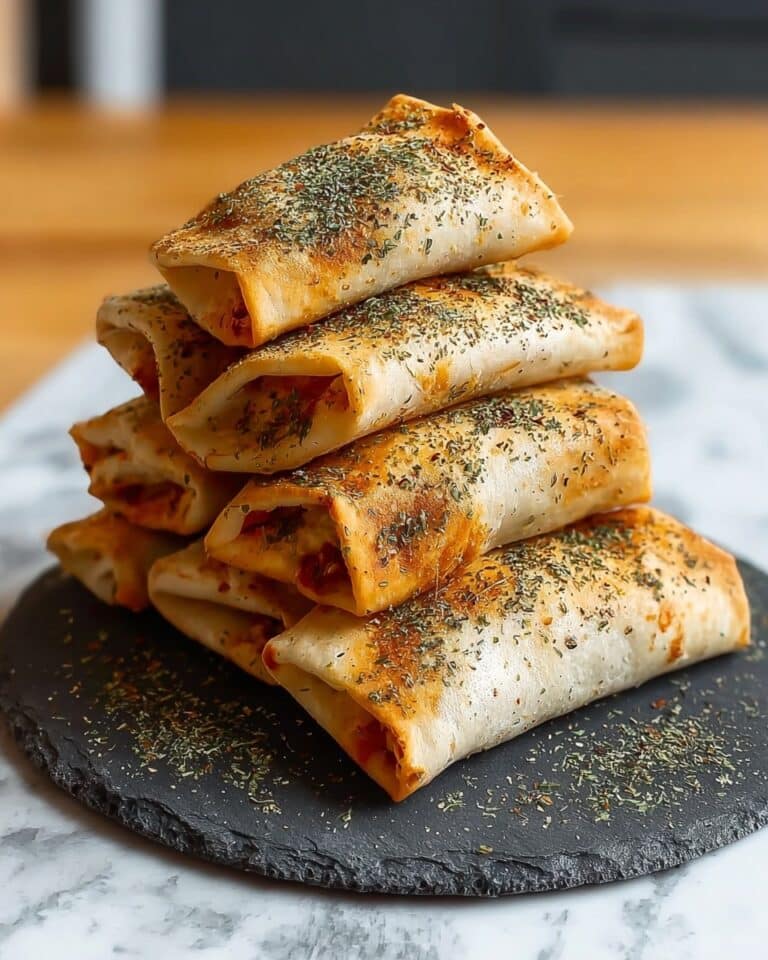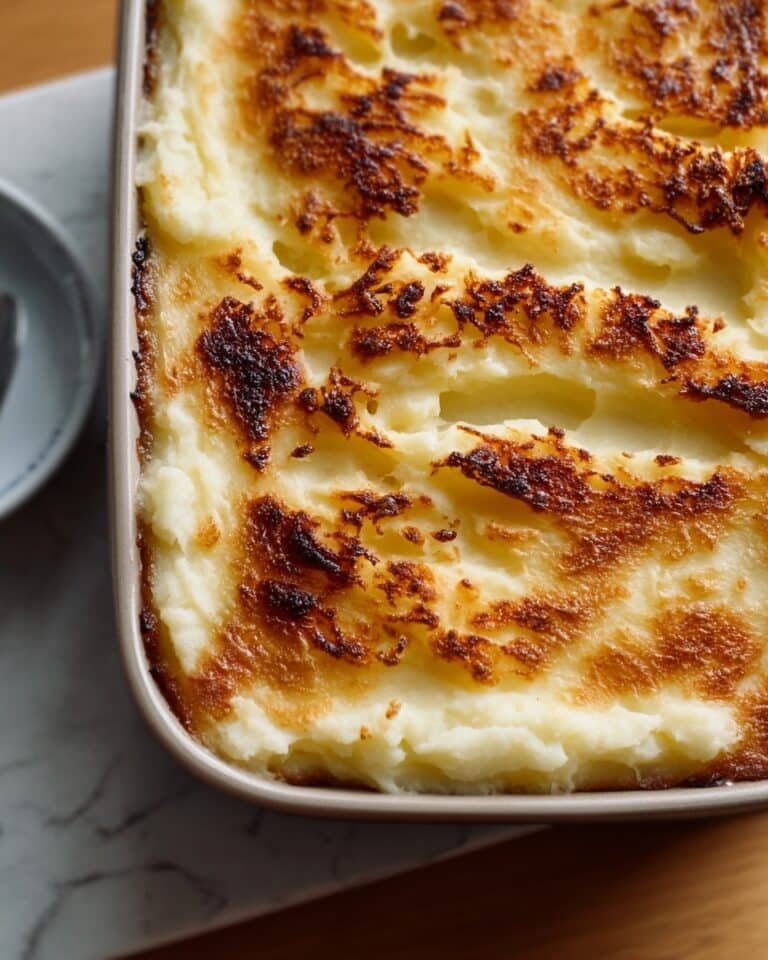Baked French Eggs Recipe
If you’re searching for a comforting, elegant breakfast that feels like a little morning celebration, Baked French Eggs are exactly what you need. These tender eggs, baked to perfection with a creamy drizzle and a golden Parmesan crust, bring a delightful blend of simplicity and sophistication to your table. Whether you’re impressing guests or treating yourself, this dish shines with the magic of minimal ingredients transforming into a truly memorable meal.
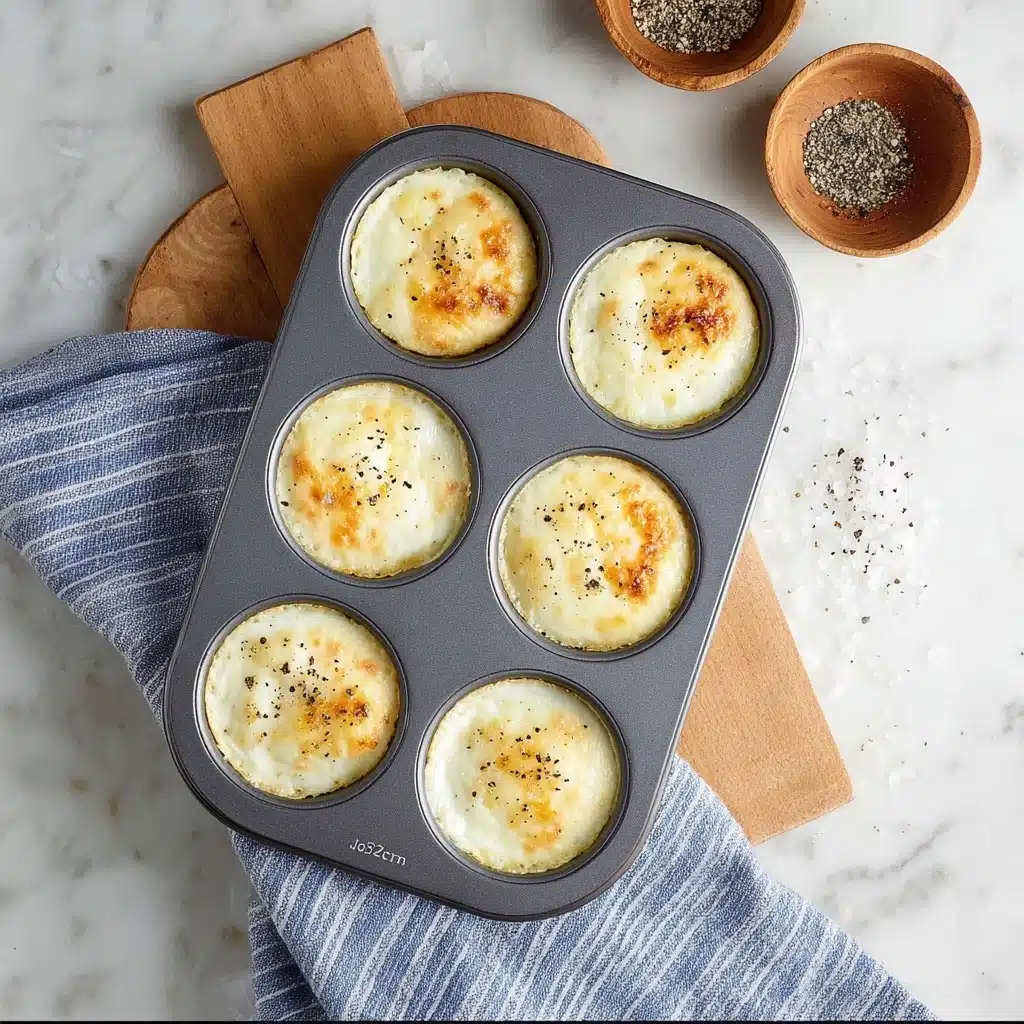
Ingredients You’ll Need
Gathering the right ingredients for Baked French Eggs is refreshingly straightforward. Each component plays a starring role in balancing the creamy, cheesy flavors with just the right touch of seasoning and texture.
- Large eggs: The heart of this dish, eggs provide that luscious, velvety base you can bake to your preferred doneness.
- Parmesan cheese: Adds a wonderfully nutty, sharp flavor that creates a crispy, golden top when baked.
- Heavy cream: Brings richness and a smooth mouthfeel that elevates every bite.
- Salt: Enhances the natural egg flavor and balances the cheese’s tanginess.
- Black pepper: Adds a touch of warmth and spice, rounding out the seasoning perfectly.
How to Make Baked French Eggs
Step 1: Prep and Preheat
Start by preheating your oven to 425°F. This high heat ensures the eggs cook evenly and the cheese crisps up just beautifully. Use butter-flavored cooking spray or a light brush of butter to grease each cup of your muffin tin, preventing any sticky surprises and adding a subtle buttery essence to the eggs.
Step 2: Crack Eggs into Muffin Cups
Gently crack one egg into each prepared muffin cup. This method not only makes serving easier but also helps each egg maintain its shape as it bakes. It’s a neat and tidy way to get those perfect rounds we’re aiming for in this dish.
Step 3: Add Cream and Seasonings
Drizzle 1 to 2 teaspoons of heavy cream over each egg. This little touch introduces creaminess that bakes into a delicate custard texture inside. If you like, a drizzle of melted butter offers a richer flavor. Then, sprinkle salt and freshly ground black pepper to taste—seasoning at this stage means the flavors infuse beautifully as the eggs bake.
Step 4: Sprinkle Parmesan and Bake
Lightly top each egg with about a tablespoon of grated Parmesan. This cheese will melt and form that signature golden crust that’s essential to Baked French Eggs. Pop the tray into the preheated oven and bake depending on your desired yolk consistency: 7 to 8 minutes for soft and runny, 9 to 10 for semi-soft, and 11 to 12 minutes if you prefer a firmer center.
Step 5: Garnish and Serve
Once baked, remove the eggs carefully from the muffin tin and add an extra sprinkle of Parmesan if you love that cheesy crunch. Serve immediately to enjoy the full contrast of textures—the creamy yolk, the tender egg white, and the crispy cheese topping.
How to Serve Baked French Eggs
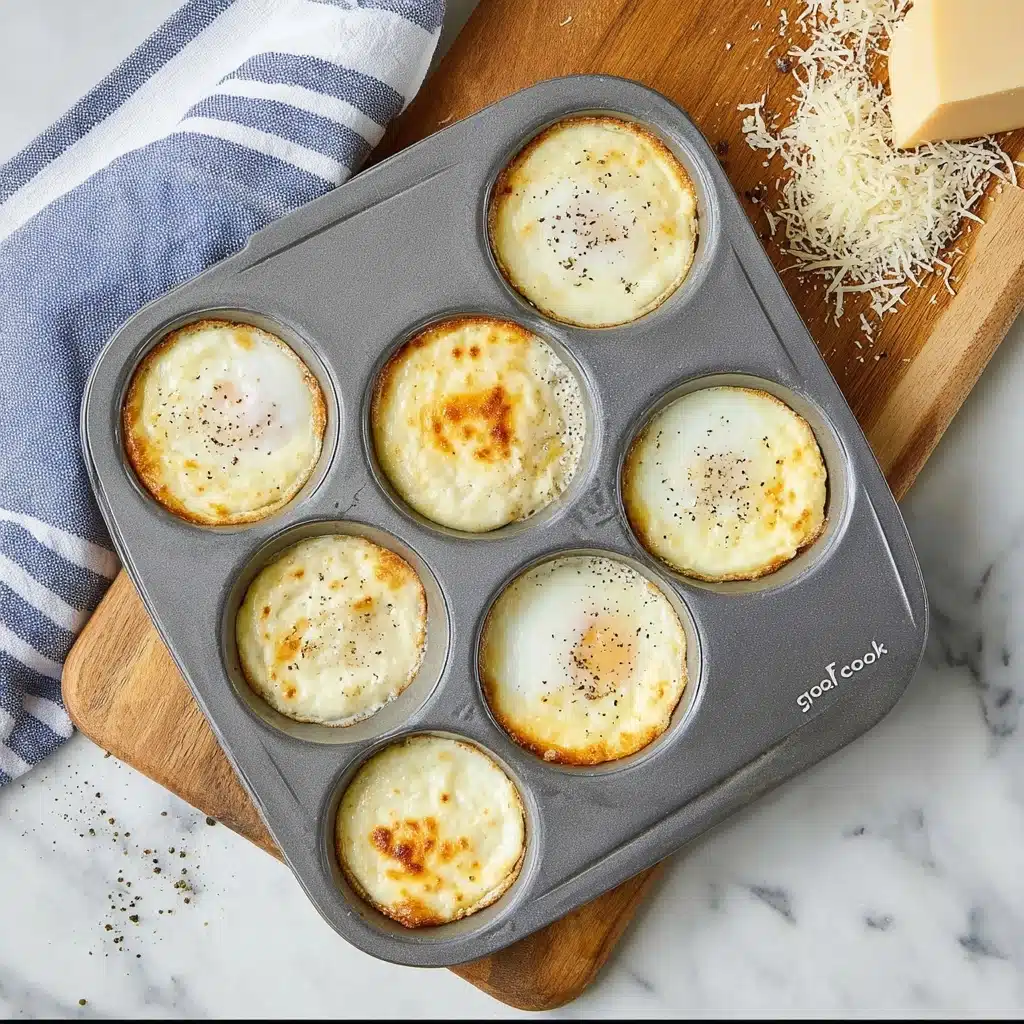
Garnishes
Enhance your Baked French Eggs with fresh herbs like chives or parsley for a burst of color and a mild fresh flavor that complements the richness. A pinch of smoked paprika or a crack of cayenne pepper also adds a welcome hint of spice that wakes up your palate.
Side Dishes
These eggs pair beautifully with toasted crusty bread or warm croissants, perfect for scooping up every last bit. For a heartier meal, add sautéed spinach or a light mixed green salad dressed with lemon vinaigrette, balancing the richness with a crisp, tangy contrast.
Creative Ways to Present
If you’re entertaining, consider serving Baked French Eggs in individual ramekins or elegant porcelain egg cups with small spoons on the side. Another fun idea is to accompany them with a colorful vegetable medley or a tomato confit, turning your breakfast into a feast both visually and flavorfully stunning.
Make Ahead and Storage
Storing Leftovers
You can keep any leftover Baked French Eggs in an airtight container in the refrigerator for up to two days. Place parchment paper between the layers if stacking to preserve that lovely cheese crust. The texture is best enjoyed fresh, but careful storage helps keep flavors intact.
Freezing
Freezing this dish is generally not recommended, as the delicate texture of the baked eggs might become rubbery or watery upon thawing. If you do want to freeze, consider separating the eggs from the crispy cheese topping and add fresh Parmesan when reheating.
Reheating
When you’re ready to enjoy leftovers, reheat Baked French Eggs gently in a 300°F oven for about 10 minutes or until warm throughout. Avoid microwaving if possible, as it can cause the eggs to become tough or dry. This low, slow warming retains that melt-in-your-mouth quality.
FAQs
Can I use a different cheese instead of Parmesan?
Absolutely! While Parmesan offers a perfect nutty crisp, you can try Gruyère for a creamier melt or even sharp cheddar for a more pronounced cheese flavor. Just remember that cooking times may vary slightly depending on the cheese used.
How do I know when the eggs are perfectly baked?
Keep track of the baking times carefully. Soft yolks will jiggle slightly when you gently shake the pan, semi-soft should hold a gentle wobble, and firm yolks will feel more set to the touch. Timing is your best guide for achieving your ideal texture.
Can I make Baked French Eggs vegan or dairy-free?
Traditional Baked French Eggs rely on eggs and dairy, but you can experiment with tofu or vegan cheese substitutes. The results will differ in texture and flavor, but with a bit of creativity, you can enjoy a plant-based version that’s still tasty.
Is it possible to add herbs or spices directly into the eggs before baking?
Yes! Fresh thyme, rosemary, or cracked black pepper mixed with the cream or sprinkled onto the eggs before baking infuses wonderful aromas and flavors. Just be careful not to overpower the delicate egg taste.
Can I prepare these in advance for a brunch party?
You can assemble the eggs in the muffin tin with cream and cheese, cover tightly, and refrigerate overnight. Bake them fresh in the morning for the best texture and flavor, making your brunch prep much easier and less stressful.
Final Thoughts
Baked French Eggs bring a little slice of French-inspired elegance right to your breakfast or brunch table with minimal fuss but maximum flavor. They’re a dish that feels special yet approachable, perfect for those mornings you want something cozy and a touch indulgent. I truly encourage you to try making Baked French Eggs soon—it’s a small recipe that makes a big, flavorful statement and will quickly become one of your favorite ways to enjoy eggs.
PrintBaked French Eggs Recipe
Baked French Eggs are a simple, elegant dish perfect for breakfast or brunch. Eggs are baked individually in muffin tins with a drizzle of heavy cream and a sprinkling of Parmesan cheese, yielding soft and creamy centers topped with a delicate cheesy crust. This versatile recipe allows for adjustments in cooking time to achieve your perfect egg texture.
- Prep Time: 5 minutes
- Cook Time: 7-12 minutes depending on desired egg doneness
- Total Time: 12-17 minutes
- Yield: 12 servings (one egg each) 1x
- Category: Breakfast, Brunch
- Method: Baking
- Cuisine: French
- Diet: Low Carb
Ingredients
Eggs and Dairy
- 12 large eggs (or desired amount)
- 8 oz grated or shredded Parmesan cheese
- 1/2 cup heavy cream (adjust quantity based on number of eggs)
Seasonings
- Salt, to taste
- Black pepper, freshly ground, to taste
- Butter-flavored cooking spray for greasing muffin cups
Instructions
- Preheat the Oven: Set your oven to 425°F (220°C) and allow it to fully preheat for even baking.
- Prepare the Muffin Tin: Lightly spray each cup of a muffin tin with butter-flavored cooking spray to prevent sticking and add subtle buttery flavor.
- Add Eggs: Carefully crack one egg into each prepared muffin cup, making sure the yolk remains intact.
- Add Cream and Seasoning: Drizzle each egg with 1 to 2 teaspoons of heavy cream. Then season with salt and freshly ground black pepper to your taste. Sprinkle approximately 1 tablespoon of grated Parmesan cheese over each egg.
- Bake: Place the muffin tin in the preheated oven. For soft, runny centers bake for 7-8 minutes. For semi-soft centers, bake 9-10 minutes. For firm yolks, bake 11-12 minutes.
- Garnish and Serve: Once baked, garnish with additional Parmesan cheese if desired. Serve immediately while warm for best flavor and texture.
Notes
- Adjust the amount of heavy cream per egg for desired creaminess.
- Cooking times can vary based on oven calibration; monitor closely to avoid overcooking.
- Use fresh Parmesan cheese for the best flavor and best melting results.
- Butter-flavored cooking spray adds flavor and prevents sticking; regular cooking spray can be used as a substitute.
- This recipe is easily scalable by adjusting ingredients and cooking in multiple muffin tins.
Nutrition
- Serving Size: 1 egg with toppings
- Calories: 110 kcal
- Sugar: 0.4 g
- Sodium: 220 mg
- Fat: 8 g
- Saturated Fat: 4.5 g
- Unsaturated Fat: 3 g
- Trans Fat: 0 g
- Carbohydrates: 1 g
- Fiber: 0 g
- Protein: 8 g
- Cholesterol: 185 mg
Keywords: Baked eggs, French eggs, Parmesan eggs, brunch recipe, breakfast eggs, baked egg cups


